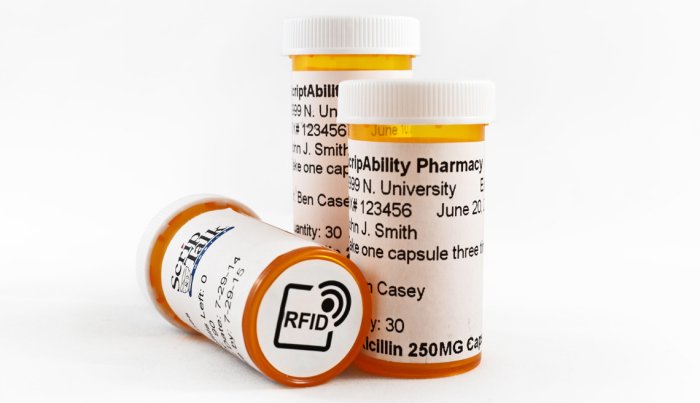Talking Labels Aid the Blind with Prescriptions
Other services also can help the visually impaired avoid life-threatening mistakes

As some people age, they may have trouble reading prescription labels, knowing what dose to take and identifying proper pills.
Mistakes can have life-threatening consequences. The challenge is exacerbated for folks who don’t see well or have a severe visual impairment though some blind people have learned to figure out which pill is which by feeling its shape or texture.
Let the label do the talking
Many pharmacies are introducing other options that promise to be far more reliable: letting a prescription label tell you what’s in the bottle, including drug names, dosage, warnings and other information. More precisely, you’ll hear the words read aloud through a standalone speaker — or your iPhone or Android handset via an app.
“I would like to see this become ubiquitous across the pharmacy landscape,” says Eric Bridges, executive director of the American Council of the Blind in Arlington, Virginia.



